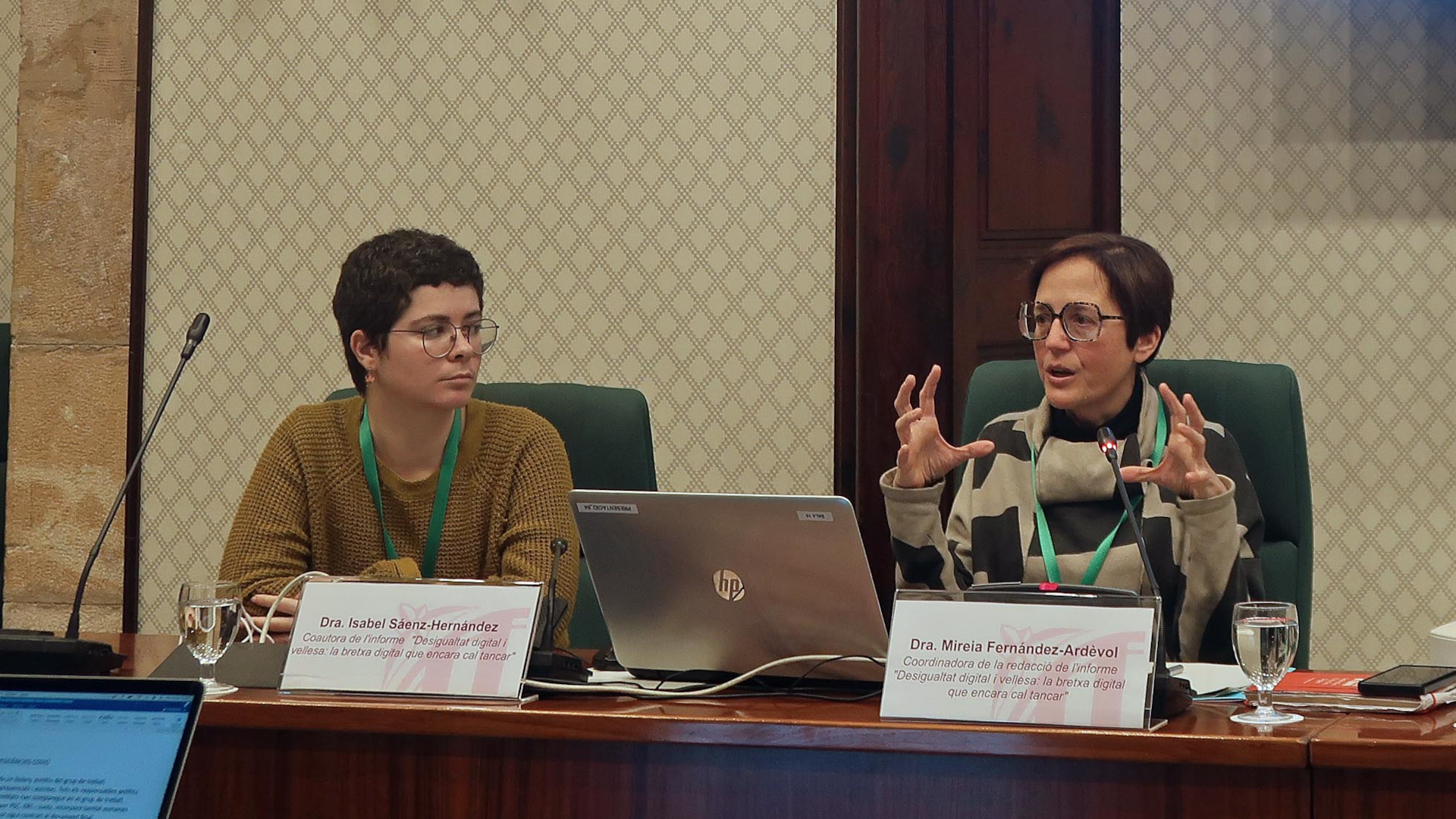An initiative to close the digital divide for people with disabilities and older people
A UOC graduate has developed an inclusion-focused technology laboratoryThe IncluTIC project was one of the eight finalists in the 12th SpinUOC, the UOC's annual entrepreneurship promotion programme

The world we live in has been transformed by new technologies. We use them on a daily basis in almost everything we do, from working, interacting with each other, communicating or studying to enjoying leisure activities or searching for information. However, many of these technologies are not designed for people with certain difficulties, for example those with disabilities or older people, who sometimes struggle with digital devices. As a result, people in these groups are often excluded, especially in some regions of the southern hemisphere.
To address this, Gustavo Alberto Hincapié, who is from Colombia and did a master's degree in Accessible Technologies at the Universitat Oberta de Catalunya (UOC), has developed IncluTIC, a technology laboratory for the inclusion of people with disabilities and those who are simply older. The project was one of the eight finalists of SpinUOC, the UOC's programme to promote entrepreneurial initiatives, which was held for the 12th time this year.
It is a platform that offers 360° services: "It's a comprehensive resource centre for the production of designs and strategies to help people put in place an adapted hardware, software or furniture solution based on their specific physical, sensory or cognitive needs," said Hincapié.
Hincapié presenting IncluTIC at SpinUOC on 27 June
“We have even put in place solutions for people who are housebound and can only study remotely”
A change of perspective
The ultimate goal is to facilitate these people's social, educational and workplace inclusion. The project supports both public and private organizations to help them with inclusive design and strategies to make their products and services more accessible.
The project is unique in that it does not directly aim to help people with disabilities to use technologies that are not designed for them. Instead, IncluTIC aims to encourage society to make the necessary changes to be inclusive for all. The platform's services are therefore aimed at schools, libraries, community centres and hospitals, among others, so that they can serve people in these groups.
For now, they are working with local governments, delivering services to their facilities based on their needs and resources. We have even "put in place solutions for people who are housebound and can only study remotely", said Hincapié.
In these cases, an IncluTIC team goes to the person's home and determines what they need to access the required service. "If they can only blink or move one eye, we adapt everything they need to attend primary or secondary school. We work in very socially deprived areas. We've even had to dismantle a bed to fit a desk in a room or fix leaks in someone's house because water was dripping onto the equipment," said the entrepreneur.
Over 25 years of experience
The IncluTIC project started as a spin-off of Tecnoayudas, a company with extensive experience in this sector in Colombia. In 2003, Hincapié's team created one of Colombia's first disability websites and later founded the NGO Corporación Disapacidad Colombia, always with the aim of using technology as a tool for the inclusion of people who have traditionally been excluded.
"In the late 1990s, technology was being developed at breakneck speed, and a future in which everything would be managed through technology seemed likely. I remember starting to wonder at that point how blind people, for example, or those with no hands, who had historically been excluded, were going to manage," said the entrepreneur, highlighting how in 2007 the team worked with the Bill and Melinda Gates Foundation and the foundation set up by artist Juanes to carry out a technology project for victims of the armed conflict in Colombia, as well as people with other disabilities. "We work in areas that have been heavily affected by anti-personnel mines as a result of the armed conflict," said Hincapié.
After years of experience, he decided to study for the master's degree at the UOC and almost immediately began to apply his new knowledge to the company and the challenge of reaching out to vulnerable groups and giving them the same opportunities as everyone else. "SpinUOC helped us put into practice our idea of creating a comprehensive and automated range of services, which we have managed to scale up to the point where we can now serve up to 500 facilities at the same time."
"When I decided to leave my job 16 years ago, everyone told me I was mad, that there was no financial security because this market was full of people with limited resources. Now I have many friends with disabilities, even though before this project I didn't know anyone who had them," he said.
This entrepreneurial project supports UN Sustainable Development Goal (SDG) 10, reduced inequalities.
UOC R&I
The UOC's research and innovation (R&I) is helping overcome pressing challenges faced by global societies in the 21st century by studying interactions between technology and human & social sciences with a specific focus on the network society, e-learning and e-health.
Over 500 researchers and more than 50 research groups work in the UOC's seven faculties, its eLearning Research programme and its two research centres: the Internet Interdisciplinary Institute (IN3) and the eHealth Center (eHC).
The university also develops online learning innovations at its eLearning Innovation Center (eLinC), as well as UOC community entrepreneurship and knowledge transfer via the Hubbik platform.
Open knowledge and the goals of the United Nations 2030 Agenda for Sustainable Development serve as strategic pillars for the UOC's teaching, research and innovation. More information: research.uoc.edu.
Experts UOC
-
Master's degree in Accessible Technologies
Press contact
-
Leyre Artiz


